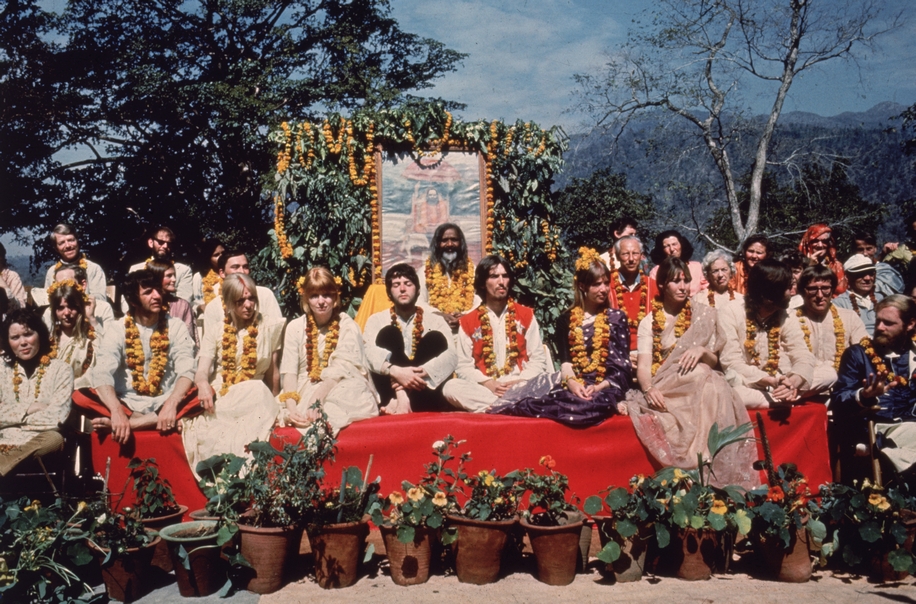
28 Jun The Power of Transcendental Meditation as told by the Beatles
- Janice Tang, Hong Kong
In 1968, the Beatles had committed to an advanced meditation retreat at the ashram of Maharishi Mahesh yogi in northern India, known as Rishikesh. They practiced transcendental meditation, which is a specific technique that uses a mantra or series of Sanskrit words to help practitioner focus on sounds. The premise is to concentrate solely on the sounds and let your focus transcend into a pure state of consciousness. This technique relinquishes your mind to the state of rest in a simple, natural and effortless way.
Their practice in transcendental meditation was notorious for their lyrical inspiration, which contributed to their 9th studio album, known as The Beatles / White Album. John Lennon had stated that they wrote 30 new songs during their stay in India, including some classics, like “Dear Prudence”, “Cry Baby Cry”, “Julia”, and “Sexy Sadie”. Though the length of their stay was cut short, it was known to be a productive period, which helped them to gain focus and a renewed creativity.
Below, includes an interview with John Lennon and George Harrison, when they discussed their learning from transcendental meditation. (This dialogue was shortened for the purpose of this blog. Please view the complete interview.
There were two things that Maharishi said this morning were the result for people meditating, following his system of meditation. The two things he claimed were serenity and energy. Have you found them?
LENNON: I’ve got a lot more energy. It’s the same energy but I don’t have to tap it, you know.
How do you mean exactly?
LENNON: The energy that I’ve found doing meditation, you know, has been there before – only that I could access it only during good days when everything was going well. With meditation I find that it could well be pouring down rain; it is still the same amount.
Is it true that any day of meditation then is equally good?
LENNON: The worst days of meditation I have are better than the worst days I had before.
George, is it true for you as well?
HARRISON: The energy is latently there every day, anyways. So meditation is just a natural process of contacting it. So by doing it each day you give yourself a chance of contacting this energy and giving it to yourself a little more. Consequently, you’re able to do whatever you normally do – just with a little bit more happiness, maybe.
How do you reach this state in meditation? Maharishi was very clear about how he – or some teacher – gave everyone a specific sound and how each person had a sound that was trying to be in rhythm with that person.
HARRISON: Each individual life state has its own rhythm. So they give you a word or sound – mantra – and by using this the whole idea is to transcend to the subtlest level of thought. And the mantra becomes more subtle and more subtle until finally you transcend even the mantra. Then you find yourself at this level of pure consciousness.
Is there actually anything you use to get back to the subject if you find earthly or irrelevant thoughts intruding?
LENNON: Yes, you just sort of sit there and you let your mind go wherever it goes. Whatever you’re thinking about, you just let it go.
At the moment you realize you’ve been thinking, you introduce the mantra or the vibration again, just to take over from the thought. You don’t limit it or use your willpower; you replace the thought with the mantra.
HARRISON: Sometimes you can go on and find that you even haven’t had the mantra any more. When you reach that point, it’s deep down there beyond normal experience and that level is timeless, spaceless, without identity. So you even don’t know how long you have been there. You just have the contact and then you go back up to the gross level, to this level. That is it.
So the aim, as opposed to just sitting and thinking, is to reach a state where you have no thought?
LENNON: You are not even conscious of that sometimes. The only time you’re conscious of being awake is when you have been asleep before. So sometimes you come out and it’s been 20 minutes sitting there. Now at other times you come out and it seems like no time has gone by at all.
And can you look back at the end of that period of meditation and see what happened during the last 20 minutes?
LENNON: It’s different for different people.
HARRISON: It’s difficult to tell anyone what is happening because the teaching is based on the individual experience.
You’re doing very well in experiencing something which probably is inexpressible. But the thing is, I mean, at the end of it – do you feel more relaxed, do you know more about yourself? Do you feel you know something more about something else?
HARRISON: You don’t feel like you have more knowledge or anything. You might, but it doesn’t feel that way exactly. You just feel more energetic. You just come out of it and it’s been refreshing.
LENNON: It takes a lot of practice to remain in this state. We’ve been doing meditation for a matter of about six weeks, maybe. I definitely feel that it takes a long practice to be able to hold that level of consciousness, to be able to bring that level of consciousness into this grosser level.
So the aim is to carry on the state you are in during meditation when you’re here?
LENNON: In fact, Maharishi said that one of the analogies, you know, is that meditation is like dipping a cloth into gold. So you dip it in and you bring it out. If you leave it in, then it gets soggy. If you sit in a cave for the whole of your life, then you’ll get a bit soggy. So meditation is like going in and coming out, in and out – for however many years.
One of you – I think Paul McCartney – said that, in fact, this feeling that meditation gives is what drugs can give temporarily. Is that so?
HARRISON: With drugs, you are still on the relative level. Just waiting and dreaming – all this is relative, only on this grosser level. Whereas when you meditate, it is all on a subtler level. So really you cannot compare them. With drugs you do have a glimpse of a few things, they heighten your experience. But if you take a drug and hope that it will bring the subtlety out of this grosser level – well, it will never work.
You’ve experimented with drugs, right?
LENNON: It was long ago. There was no going further. What it does is mainly finding out about yourself, your ego. With acid it is all about yourself. The thing is that your true self is at a deeper level. And the way to approach it is through meditation or some other form of yoga – I’m not saying that this form of meditation is the only form that is out there. It is obviously not; yoga incorporates many different techniques. But the whole point is that each soul is divine and meditation is the technique of manifesting this, of arriving at that state which is divine.




No Comments